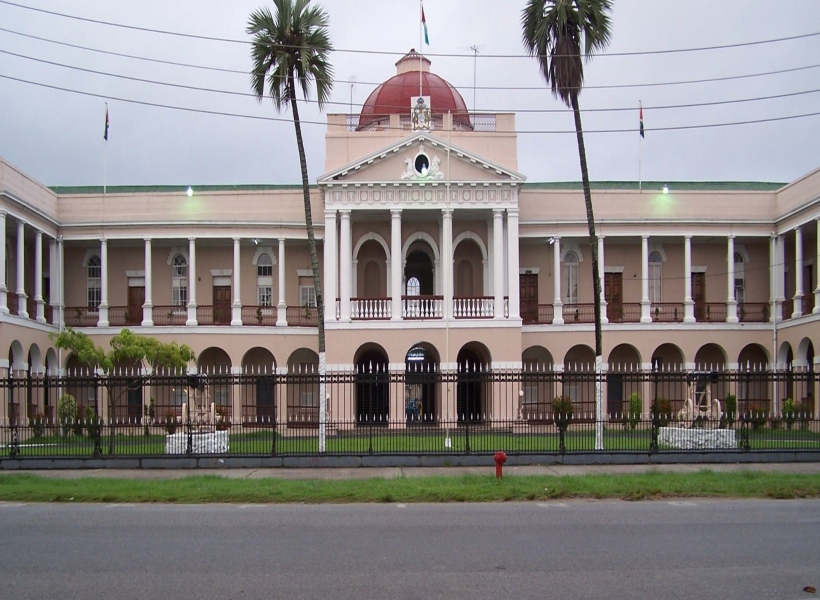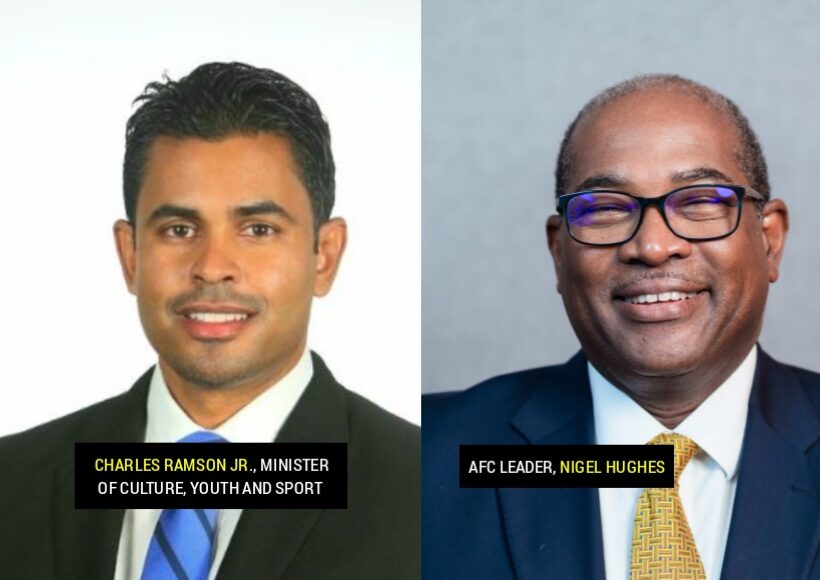By Staff Writer
Nigel Hughes, an attorney-turned-political leader and presidential aspirant, is also associated with a law firm representing oil companies, including ExxonMobil, which has contractual obligations with Guyana for oil extraction in the country. The government is up in arms over the alleged conflict of interest, but the lawyer and his client remain peas in a pod. The Guyanese people, however, are not stupid, says Culture, Youth and Sport Minister, Charles Ramson Jr. as he dealt a blistering commentary on the state of affairs, saying that the lawyer’s self-insulation from the sector legitimises the government’s concerns.
Hughes, following condemnation and pressure about this dual position, publicly stated that he will insulate himself from issues of oil and gas at the level of his firm and will have no voice on oil and gas matters within his party, the Alliance for Change (AFC). Essentially, Hughes has deliberately barred himself from representing oil and gas companies and eliminated himself from oil and gas at the political level. The fact that he needed to take this extreme position, means that there is indeed a conflict of interest, Ramson argues.
Scoffing at the development, he said: “The fact that Mr Hughes has to effectively recuse himself from oil and gas matters; that, in and of itself says that there is a conflict of interest. That is 100 per cent effectively in conclusion that there is a conflict of interest.”
The Minister noted that regardless of what Hughes says about insulation, he has already showed his hand on where his loyalty lies. Referencing a Demerara Waves article in which Hughes argues that compromising the quality of legal representation to favour Guyana would be unfair to his clients, Ramson was quick to point out that such a situation smacks of conflict of interest.
Further, Ramson, a former practising lawyer, noted that Hughes’ reluctance to not part way with one of the conflicted positions is “very revealing”. He said that Hughes does not want to give up a profitable relationship with the oil companies but still wants to represent the interest of Guyanese, whose interest he hopes to be tasked with as a presidential aspirant. The Minister was keen to point out that a political leader – a true representative of the people – one must put people first and must be willing to make that sacrifice regardless of what is being dangled. He added that being a political leader also comes with the requirement of being selfless.
“I made those decisions all the time when I was a practising as an attorney, but Mr Hughes wants to keep Exxon as his client because it’s very lucrative, but also decides he wants to be in politics. So, this is a situation where he wants to have his cake and eat it too. You can’t do both in politics; you have to make a choice – it’s a sacrifice. Mr Hughes, however, wants to maintain the high fees that the oil companies are paying, but on the other hand, he still wants to represent people – the two don’t match,” Ramson noted.
OIL COMMITTEE
The Minister also commented on Hughes talk about the establishment of an intra-party to deal with oil and gas matters. He said that that such a move “insults the intelligence of Guyanese”.
“It is foolish to think that Guyanese people would not see through that. Think about it: I’m part of a political party but as leader, I am going to say, I have no say in the policy of oil and gas?”
Ramson said that regardless of insulation, Hughes will still have views and those positions could influence the “friends” he has in the party and those who revere him as the leader.
Ramson said that Hughes has chosen to not speak on matters related to the oil and gas industry despite it being the most important sector in the country and one that has become woven into the fabric of the modern-day Guyanese economy.
Nevertheless, the Minister said that Hughes’ balancing act will ultimately tip over because Guyanese would never elect someone who professes to have their best interest at heart but has publicly stated his willingness to forego that for clients.













